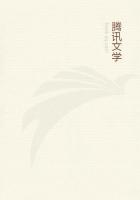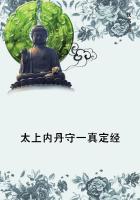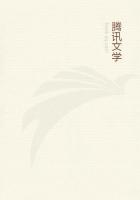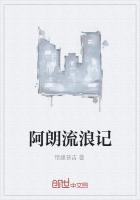There is accordingly no PROOF that Chaucer was a married man before 1374, when he is known to have received a pension for his own and his wife's services. But with this negative result we are asked not to be poor-spirited enough to rest content. At the opening of his "Book of the Duchess," a poem certainly written towards the end of the year 1369, Chaucer makes use of certain expressions, both very pathetic and very definite. The most obvious interpretation of the lines in question seems to be that they contain the confession of a hopeless passion, which has lasted for eight years--a confession which certainly seems to come more appropriately and more naturally from an unmarried than from a married man. "For eight years," he says, or seems to say, "I have loved, and loved in vain--and yet my cure is never the nearer. There is but one physician that can heal me--but all that is ended and done with. Let us pass on into fresh fields; what cannot be obtained must needs be left."It seems impossible to interpret this passage (too long to cite in extenso) as a complaint of married life. Many other poets have indeed complained of their married lives, and Chaucer (if the view to be advanced below be correct) as emphatically as any. But though such occasional exclamations of impatience or regret--more especially when in a comic vein--may receive pardon, or even provoke amusement, yet a serious and sustained poetic version of Sterne's "sum multum fatigatus de uxore mea"would be unbearable in any writer of self-respect, and wholly out of character in Chaucer. Even Byron only indited elegies about his married life after his wife HAD LEFT HIM.
Now, among Chaucer's minor poems is preserved one called the "Complaint of the Death of Pity," which purports to set forth "how pity is dead and buried in a gentle heart," and, after testifying to a hopeless passion, ends with the following declaration, addressed to Pity, as in a "bill" or letter:--This is to say: I will be yours for ever, Though ye me slay by Cruelty, your foe;Yet shall my spirit nevermore dissever >From your service, for any pain or woe, Pity, whom I have sought so long ago!
Thus for your death I may well weep and plain, With heart all sore, and full of busy pain.
If this poem be autobiographical, it would indisputably correspond well enough to a period in Chaucer's life, and to a mood of mind preceding those to which the introduction to the "Book of the Duchess" belongs. If it be not autobiographical--and in truth there is nothing to prove it such, so that an attempt has been actually made to suggest its having been intended to apply to the experiences of another man--then the "Complaint of Pity" has no special value for students of Chaucer, since its poetic beauty, as there can be no harm in observing, is not in itself very great.
To come to an end of this topic, there seems no possibility of escaping from one of the following alternatives. EITHER the Philippa Chaucer of 1366 was Geoffrey Chaucer's wife, whether or not she was Philippa Roet before marriage, and the lament of 1369 had reference to another lady--an assumption to be regretted in the case of a married man, but not out of the range of possibility. OR--and this seems on the whole the most probable view--the Philippa Chaucer of 1366 was a namesake whom Geoffrey married some time after 1369, possibly, (of course only POSSIBLY,) the very lady whom he had loved hopelessly for eight years, and persuaded himself that he had at last relinquished--and who had then relented after all. This last conjecture it is certainly difficult to reconcile with the conclusion at which we arrive on other grounds, that Chaucer's married life was not one of preponderating bliss. That he and his wife were COUSINS is a pleasing thought, but one which is not made more pleasing by the seeming fact that, if they were so related, marriage in their case failed to draw close that hearts' bond which such kinship at times half unconsciously knits.
Married or still a bachelor, Chaucer may fairly be supposed, during part of the years previous to that in which we find him securely established in the king's service, to have enjoyed a measure of independence and leisure open to few men in his rank of life, when once the golden days of youth and early manhood have passed away. Such years are in many men's lives marked by the projection, or even by the partial accomplishment, of literary undertakings on a large scale, and more especially of such as partake of an imitative character. When a juvenile and facile writer's taste is still unsettled, and his own style is as yet unformed, he eagerly tries his hand at the reproduction of the work of others; translates the "Iliad" or "Faust," or suits himself with unsuspecting promptitude to the production of masques, or pastorals, or life dramas--or whatever may be the prevailing fashion in poetry--after the manner of the favourite literary models of the day. A priori, therefore, everything is in favour of the belief hitherto universally entertained, that among Chaucer's earliest poetical productions was the extant English translation of the French "Roman de la Rose." That he made SOME translation of this poem is a fact resting on his own statement in a passage indisputably written by him (in the "Prologue" to the "Legend of Good Women"); nor is the value of this statement reduced by the negative circumstance, that in the extraordinary tag (if it may be called by so irreverent a name) to the extant "Canterbury Tales," the "Romaunt of the Rose" is passed over in silence, or at least not nominally mentioned, among the objectionable works which the poet is there made to retract. And there seems at least no necessity for giving in to the conclusion that Chaucer's translation has been lost, and was not that which has been hitherto accepted as his.

